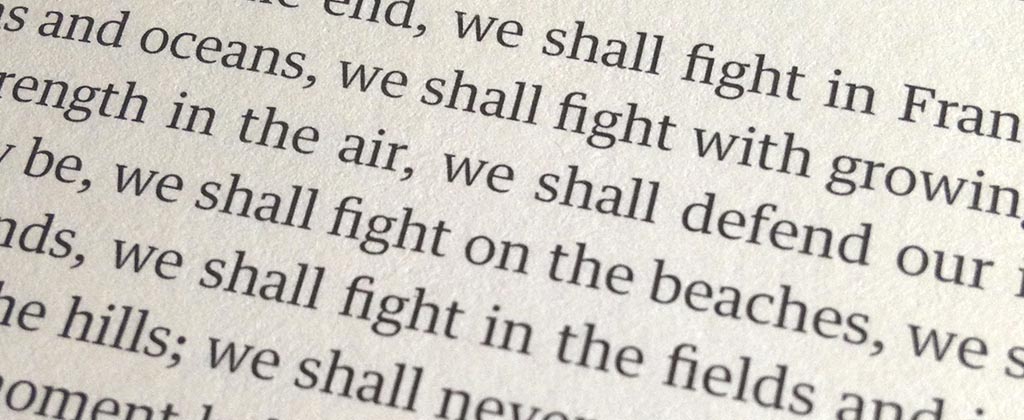Great Speeches: Winston Churchill - June 4th 1940
This post is part of a Series on Great Speeches. In 2007 The Guardian published a series of booklets, with accompanying cd, entitled Great Speeches of the 20th Century, ranging from Winston Churchill to Nelson Mandela, Emmeline Pankhurst to Virginia Woolf.
It’s so easy to forget the extent of potential disaster surrounding Great Britain on the occasion of Churchill’s speech. Yes, we know that they were at war and it was a time of great threat and uncertainty, but we see that through the lens of ultimate triumph.
Simon Schama writes that Churchill “felt ‘physically sick’ at the cabinet meeting of May 26th 1940 when the horrifying magnitude of the German sweep to the Channel was sinking in”. The allies had just been defeated at Dunkirk and over 300,000 men had to be rescued from the north coast of France.
Churchill’s response to this, when he addresses the Houses of Common on June 4th 1940, is to tell the story of what happened. He fills his speech with the details. He doesn’t shy away from telling the British people how terrible the situation is, even resolving on behalf of the empire to “defend to the death their native soil”, before ultimately calling them to victory.
His language is poetic and descriptive. He uses all his rhetorical skill of pitch and pace, lowering his voice and then rising to a roar, to declare that despite the defeat and despair, a “miracle of deliverance” was accomplished at Dunkirk, and defiance will be the anthem for the battles to come.
... Even though large tracts of Europe and many old and famous States have fallen or may fall into the grip of the Gestapo and all the odious apparatus of Nazi rule, we shall not flag or fail. We shall go on to the end, we shall fight in France, we shall fight on the seas and oceans, we shall fight with growing confidence and growing strength in the air, we shall defend our Island, whatever the cost may be, we shall fight on the beaches, we shall fight on the landing grounds, we shall fight in the fields and in the streets, we shall fight in the hills; we shall never surrender, and even if, which I do not for a moment believe, this Island or a large part of it were subjugated and starving, then our Empire beyond the seas, armed and guarded by the British Fleet, would carry on the struggle, until, in God's good time, the New World, with all its power and might, steps forth to the rescue and the liberation of the old.
At a time when listening to the spoken word on the radio was vital to the direction and inspiration of the country, Churchill’s education and experience of public speaking was crucial. But ‘knowing your audience’ was as important then as it is now and Churchill knew his most important listeners were outside the walls of Parliament.
Ordinary Words To Work Extraordinary Magic
“Bulldog oratory was, of course, to become his greatest weapon”, Sonia Purnell writes in First Lady, her brilliant biography of Clementine Churchill. “Significantly, together they agreed that, in order to rally people’s spirits most effectively, he should stick to simple vocabulary. Now more than ever the power of his speeches would be weakened if most listeners needed dictionaries to understand them. Ordinary words - beaches, streets, finest hours, beginnings and ends - were to work extraordinary magic on Britain’s morale during those early months … but few knew that Clementine coached Winston before he spoke.”
This speech was one of three memorable speeches given within weeks of each other. And with each one Churchill managed to paint a picture with his words and galvanise the country for the battle ahead. Extracts of this one were read out on that evening's BBC news and this was the account of Vita Sackville-West -
"Even repeated by the announcer, it sent shivers (not of fear) down my spine. I think that one of the reasons why one is stirred by his Elizabethan phrases is that one feels the whole massive backing of power and resolve behind them, like a great fortress: they are never words for words sake"

